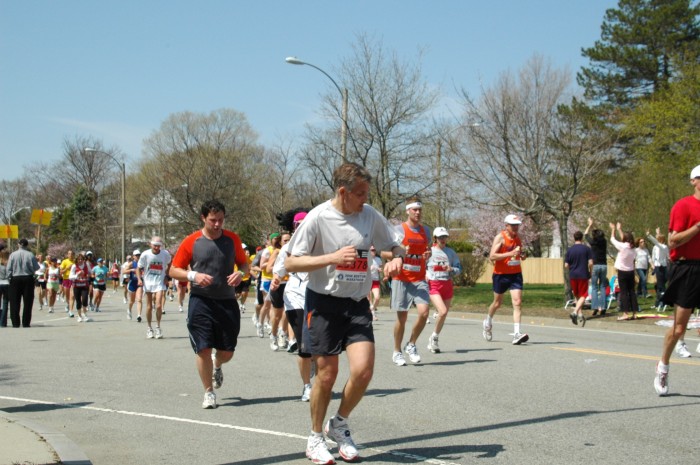Getting older gracefully is something many aspire to do. Some people, however, want more than that. Flying into our 90s is the dream... right? Look at Olga up there -- she's flying!! She wants to age with speed, agility, and athletic achievements in age-group competitions. But getting to the top of "masters" divisions or the "senior games" isn't as easy as it used to be for the Olgas of the world.
Nowdays instead of ever-shrinking 65-70 and 75-80 year old competition brackets, they're growing... more about that in a future article But first, the bad news remains: we lose 10% of our lean muscle every decade. Only strength training and regular exercise can prevent muscle loss. Left unchecked, the lost muscle is replaced with fat.
So for a woman who starts out in her 20s or 30s with a relatively healthy 80% lean, 20% fat body she'll enter her 40s with a 70% lean, 30% fat even IF her weight stays the same. Her sizes will go up ever so slightly and it may "not matter much" at first, but there are consequences:
Everything feels pudgy. Energy levels drop. Life gets harder.
People already in their 40s and 50s folks know that losing weight gets harder as we age, and why is that? It's because the metabolic engine that is our lean muscle mass is getting eaten away. Like termites gnawing away at wood, fat creeps in to replace our muscle as our own bodies only naturally conserve and build strength in youth but atrophy with age.
Hormones have a role in this process, no doubt, but rather than hitting the needles and popping pills... why not use the muscle you have to conserve the metabolism you need to age gracefully and healthfully.
As reported by the NY Times, there is inspiration to be found in the 80-year olds who stay fit with good, old-fashioned work. Consistency is the key. And researchers learning more about aging every year:
Some researchers now see aging itself as a kind of mitochondrial disease. Defective mitochondria appear as we get older, and these researchers say that they rob us of endurance, strength and function. There’s evidence that for young patients with mitochondrial disease, exercise is a potent tool, slowing the symptoms. If that’s true, then exercise could also potentially be a kind of elixir of youth, combating the ravages of aging far more than we thought.









